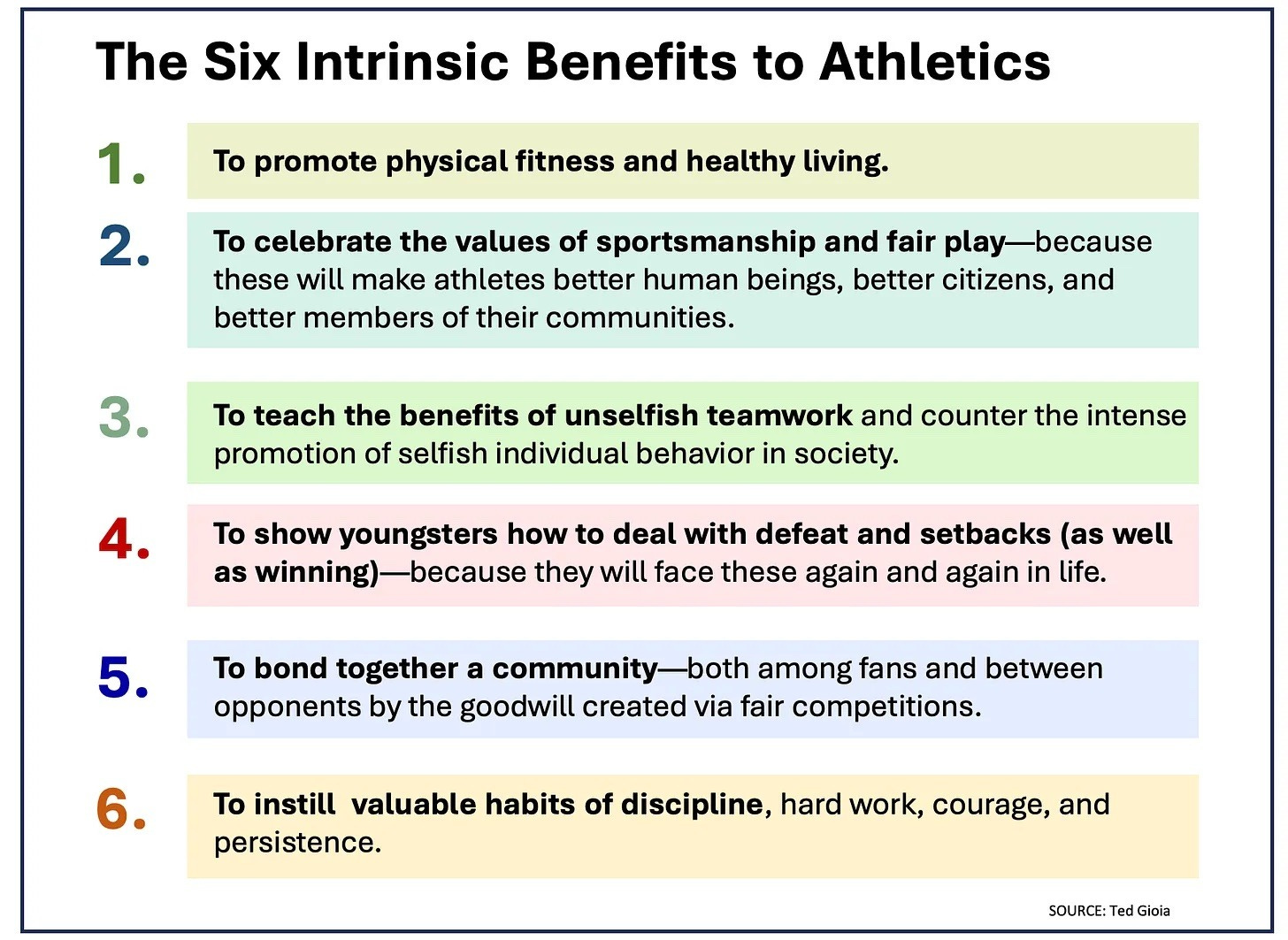
My son recently played his first basketball game. As I was watching him, I wondered, “Where will this all go?” It was cool to think about. His future is * TOM PETTY VOICE * wiiiide open.
He could play a few years and then do something else, which is fine. He could play all the way through high school, maybe as a role player. He could be a starter. Maybe a star.
Who knows?
It’s mostly up to him.
What’s unlikely – and not just because he shares my genetics as a slow, short guy who makes up for it by being handsome – is that he will ever play professionally. Few play in the pros. (You could make a good argument that too many play in the pros if you have ever watched a Washington Wizards game.)
If the goal isn’t to play professionally or get a scholarship, it’s fair to ask — why invest all the time driving to practices and games and washing the uniforms at night and going to team events?
Because sports uses forms of play to help mold kids into adults.
And that’s the job.
We’re not raising kids.
We’re raising future adults.
It’s why we send them to school. It’s why we correct their language. It’s why we give them the stink eye when they want to eat dinner under the restaurant table. Their job is to be cute and learn incrementally. Our job is to enjoy these best years of our lives together while getting them ready to go off and work, and fall in love, and maybe one day have a family of their own.
So, what does that have to do with playing power forward?
I suspect one of the reasons I’ve soured so much on professional sports as an adult is that it’s all divorced from the real value of sports. In the media, in conversations with friends and strangers, from the mouths of pro athletes themselves, we talk about sports in terms of winning and losing. I listen to sports talk radio in Cleveland, and most of it boils down to “Can X help us win? No? Bye!”
Winning and losing. Succeeding and failing. Who’s the best? Who’s to blame?
The focus is completely on outcome, which can be glamorous, not process, which can be boring. But outcome isn’t the true value of sports. Process is.
Outcome is the residue – the remains after a combustive process.
What’s wrong with a focus on outcome? Have you met a happy sports fan? Most of us exist in a state of quasi-misery. Why? We’re emotionally invested in the wrong part of sports.
OK … so what does that have to do with playing power forward?
I’m getting to it.
Michael Jordan was more invested in winning than any athlete ever. He is the greatest. And he’s miserable. He did not give the Hall of Fame speech of a tranquil man who achieved the heights of American success. The totality of his identity is invested in outcome, and when you do that, you hand your mental well-being over to forces well beyond your control. It’s not healthy.
The real value of sports isn’t winning. The real value of sports is engaging in organized play as a means of becoming a better person through discipline, teamwork, sportsmanship, overcoming adversity and making good choices for your body. It’s the foundation Dean Smith laid down at North Carolina for Jordan. The superstructure he built atop it was amazing and historic and in some ways tragic.
I love this list from The Honest Broker.
I know I sound like a high school basketball coach from the 1960s right now, but I apologize for nothing. When I watch grade school basketball, and swimming, and baseball, the game play … is … what’s the word? … not good. And of course it’s not, because their skill sets are as limited as their bodies. What I’m looking for is any kind of improvement.
What does improvement mean? It means grasping some or all of the benefits listed above. I don’t need my kids to get faster and stronger, although it’s great if they do. If they win – hey, more fun to watch, but not the point. What I’m looking for is proof that they are adopting habits that will help their teams now and help them as adults later. Because of that, no matter the outcome, if they’re making an effort in practice and in competition, then they’re benefiting from sports.
I know what some might be thinking.
Yo.
This is loser talk.
Winning is everything.
Losing is failure.
But I’d argue it’s the over-investment in winning that displays a lack of confidence, a certain need to have your success be known to all, a form of vaporous validation. The total ultimate flex in life — and the best of the best athletes know this — is not caring too much about whether you won or lost as long as you’re proud of the way you played.
If you liked this one, you may enjoy this piece about what my daughter and I do during practice. It’s much more fun than it sounds.




Hear hear. Makes me think of this interview response and how little we hear such brilliant acknowledgements in any of professional sports. https://www.youtube.com/watch?v=uZwlAzr44ys
Great article. It reminds me of my late grandfather who shared a lot of wisdom despite being illiterate. Like he said often, it's good to have ambition but not too much because there's only one place to go when you're at the top and that's down. Unfortunately, too few people know how to get back up when they end up at the bottom. Sports can also be a great tool to teach about being a team player, so long as the leadership isn't looking to groom the next #1.